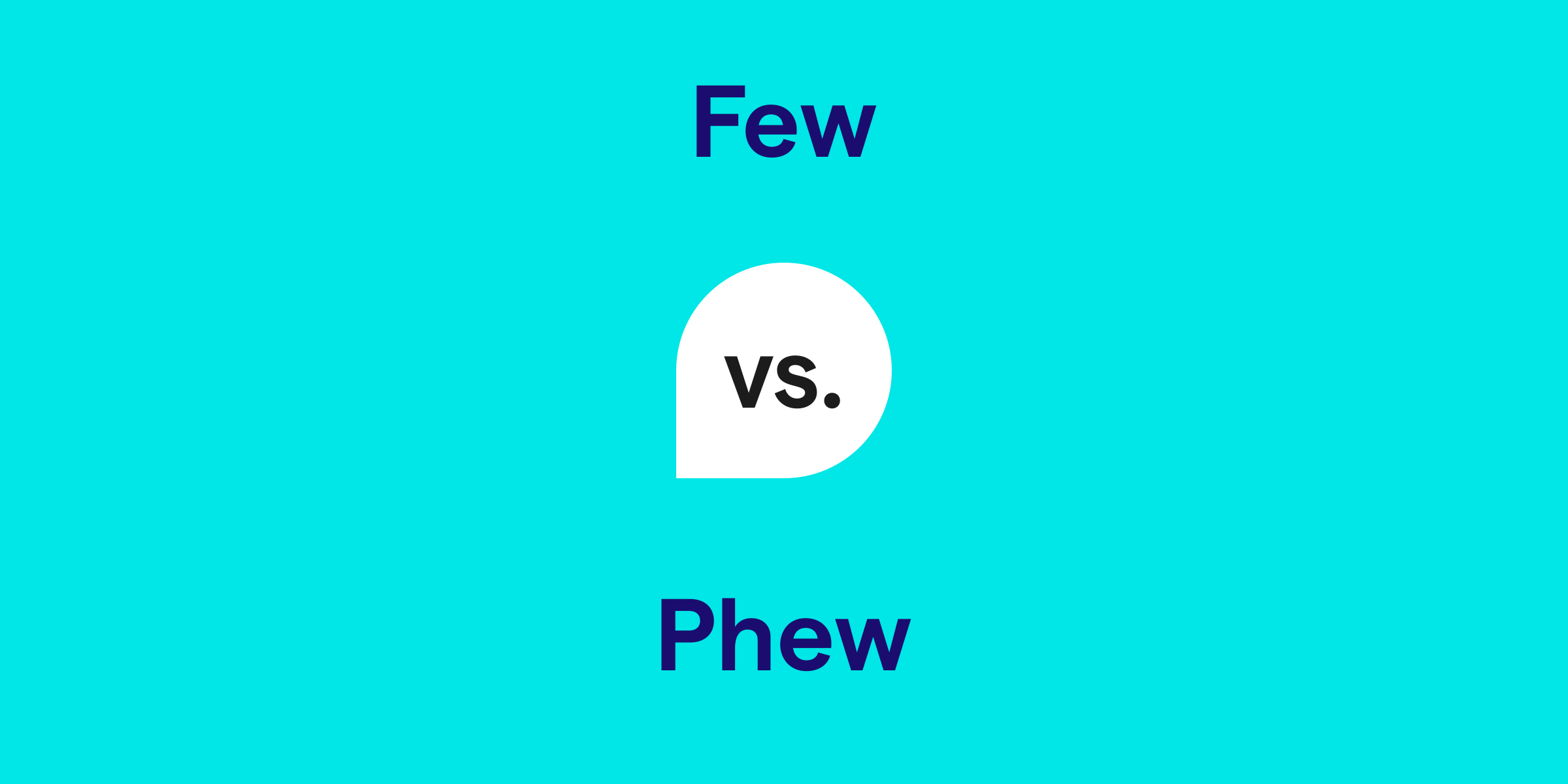Few vs. Phew: What's the Difference?
Understanding the difference between few and phew is essential for clear communication. Few is an adjective or pronoun that indicates a small number of people or things. It conveys the idea that there is not much of something. On the other hand, phew is an interjection used to express relief, tiredness, or a similar emotion after a narrow escape or a completion of a difficult task.

How do you use the word few in a sentence?
Use the word few when you want to describe a small number of items, people, or a lesser amount of quantity. Few can be used to indicate scarcity or to signify that something is not plentiful. It's often used in contexts where the numerical quantity is important, yet it remains relatively low.
Examples of few in a sentence
- There are only a few pieces of cake left, so make sure to get a slice soon.
- During the trial, the lawyer spoke to a few witnesses to gather more evidence.
- The museum was almost empty, with just a few visitors wandering the halls.
How do you use the word phew in a sentence?
The word phew is used as an expression of relief, often after a stressful situation has been resolved or a demanding task has been completed. It's also used to show amazement or disbelief at something astonishing. Phew doesn't relate to quantity or number but rather to human emotion.
Examples of phew in a sentence
- Phew, I thought we were going to miss the train, but we made it just in time.
- After climbing to the top of the hill, he exclaimed, 'Phew, what a hike!'
- She opened the last examination result, saw she had passed, and whispered to herself, 'Phew, that was close.'
Few and phew definition, parts of speech, and pronunciation
Few definition:
Few is used to indicate a small number of things, people, or amounts that are not as much as expected or desired. It suggests a quantity that is more than one but indefinitely small.
Few parts of speech:
Few pronunciation:
Few is pronounced as /fjuː/.
Phew definition:
Phew is an exclamation used to express a wide range of emotions such as relief, amazement, or even weariness. It is typically used informally.
Phew parts of speech:
Phew pronunciation:
Phew is pronounced as /[s]fire [˹]freja�ʊ/.
Few is used to indicate a small number of things, people, or amounts that are not as much as expected or desired. It suggests a quantity that is more than one but indefinitely small.
Few parts of speech:
- As an adjective: I have a few books you can borrow to read over the weekend.
- As a pronoun: Few understand the complexities of quantum physics.
Few pronunciation:
Few is pronounced as /fjuː/.
Phew definition:
Phew is an exclamation used to express a wide range of emotions such as relief, amazement, or even weariness. It is typically used informally.
Phew parts of speech:
- As an interjection: Phew, that workout was intense!
Phew pronunciation:
Phew is pronounced as /[s]fire [˹]freja�ʊ/.
Few vs. phew in a nutshell
While few pertains to a small quantity or number, phew echoes a sigh of relief or astonishment. These words serve distinct linguistic functions: few as an adjective or pronoun providing information about quantity, and phew as an interjection conveying emotion. Pronounced differently, they bring clarity and expression to our conversations, ensuring we can quantify with few or react with phew as necessary.
Get AI Writing Assistance Wherever You Type
Make sure your vocabulary is on point and every punctuation mark is in the right place, no matter where you’re working. Grammarly works across more than 1 million websites and apps so you can improve your writing without copying, pasting, or breaking focus.

More Commonly Confused Words
Interest piqued? Pore (not pour) over other commonly confused words to help your writing reach peak (not peek) performance.